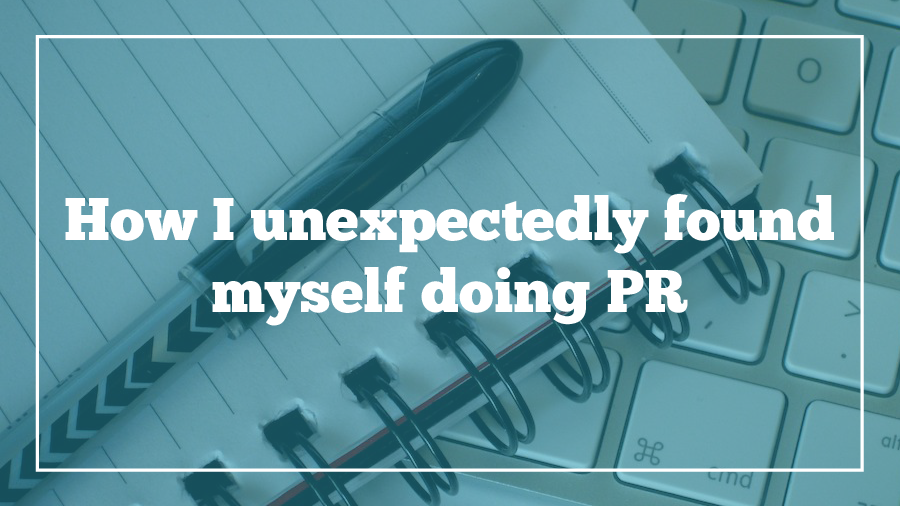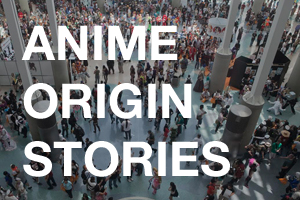
Usually, my name can be found in the byline of an article. But last week, it was in reporters’ inboxes, too.
That’s because I was in charge of sending the J-Novel Club Anime Expo public relations (PR) announcements. I’ve been working with Sam, the J-Novel Club founder, since before he launched the site. I even designed it! I never planned to do PR there, but the role fits surprisingly well. I use my own name and my own press contacts that I’ve built over the years. As a journalist myself, I feel confident writing emails that I think other journalists will find helpful.
In the past few years, I’ve realized I really enjoy this kind of writing. I got my first taste of PR while writing my own press releases to announce each of my books. I’ve managed publicity for other clients and I’ve also helped friends working on cool projects workshop their own press strategies. The highlight to date was when a young communications student at my alma mater and I had a phone conversation about writing PR that’s earnest and doesn’t suck.
When I was getting my Masters in Journalism, there was this idea that press and PR were polar opposites. One of my classes met in a communications building classroom right after the PR track had met there. We’d laugh at the professors’ obsequious strategies on the board about winning reporters over. At the time, I guessed PR and the press had a combative relationship. PR reps would push me to write glorified ads, I thought, and I would have to push back.
But while I’ve gotten my fair share of terrible press releases on boring or irrelevant topics, public relations point-people have helped me immensely. They send topics right to my inbox so I don’t have to search so hard for stories. They set up interviews with hard-to-reach people. They trust me with news ahead of time so I can publish timely exclusives. They offer to send me free stuff, which I usually refuse unless they send me something I am going to review because as nice as PR contacts are, they are not my friends and nothing they send me is really free.
You’d assume there are more strings attached here, but I somehow maintain good relations with PR contacts even when I write negative stories. I incorrectly called my Amazon Anime Strike piece a bridge-burner, because I used my connections and privilege as a reporter in order to write a negative piece about how much the service disappointed me. But after I sent them a link to the article, the PR contact said they looked forward to working with me again.
Just last week, a PR contact thanked me for my critical article about Cosplay Token. So if there is a string attached, it’s this: if I write anything, they win, because they get attention.
Honestly, I wish somebody had told me this earlier in my career: there’s nothing “brave” about writing negative stories that benefit my readers because no ethical company is going to cut my access because of a legitimate, if negative, story. That would just make them look bad.
The thing that does restrict my coverage? Well, doing PR. I wrote exactly one article about J-Novel Club before I started doing regular PR for them, and even that has a caveat about my ties to the company. I wouldn’t have written an article like that today, because I indirectly benefit.
Still, I would be comfortable with say, being a whistleblower if I learned about bad practices there (fortunately, I have not). I feel the same way about basically anywhere I work. Even though I’ve been writing at Anime News Network for four years, I’ve spoken publicly about being disappointed with CEO Chris Macdonald’s decision to join the Otaku Coin board (and following that up with how glad I was when he backed out of that).
You see, none of the places I work really need me. I am not an employee of anyone. A fellow freelancer recently shared a story on Facebook about these tenuous connections: after a year of turning in well-received work, she got pneumonia and was two days late on a deadline. The company paid her promptly as usual, and never contacted her again. It was perfectly legal. Anyone I work for could just as easily sever ties with me.
But there’s a kind of freedom in that, too. I don’t have one master. No one outlet has so big a vise on my wallet that I can’t up and leave. If one of them does something so poisonous that I don’t want to be associated with them anymore, it’s not a major financial hardship for me.
Lives and careers are messy. Even if I never did PR, this would be the case. My articles are full of editor’s notes: “I donated to this Patreon,” or “I met this founder at a con.” I have a lot of allegiances, sure, but my sense of right and wrong is stronger. Ultimately, my most powerful relationship is to my readers, without whom I wouldn’t have anything. As long as I feel like I’m doing right by them, I can sleep well at night.




1 Comment.
[…] unexpected boon. Lauren at Otaku Journalist wrote a personal tale that discusses how she ended up working as a PR representative for J-Novel Club, and the circumstances that have defined her career over the years, as well as the […]